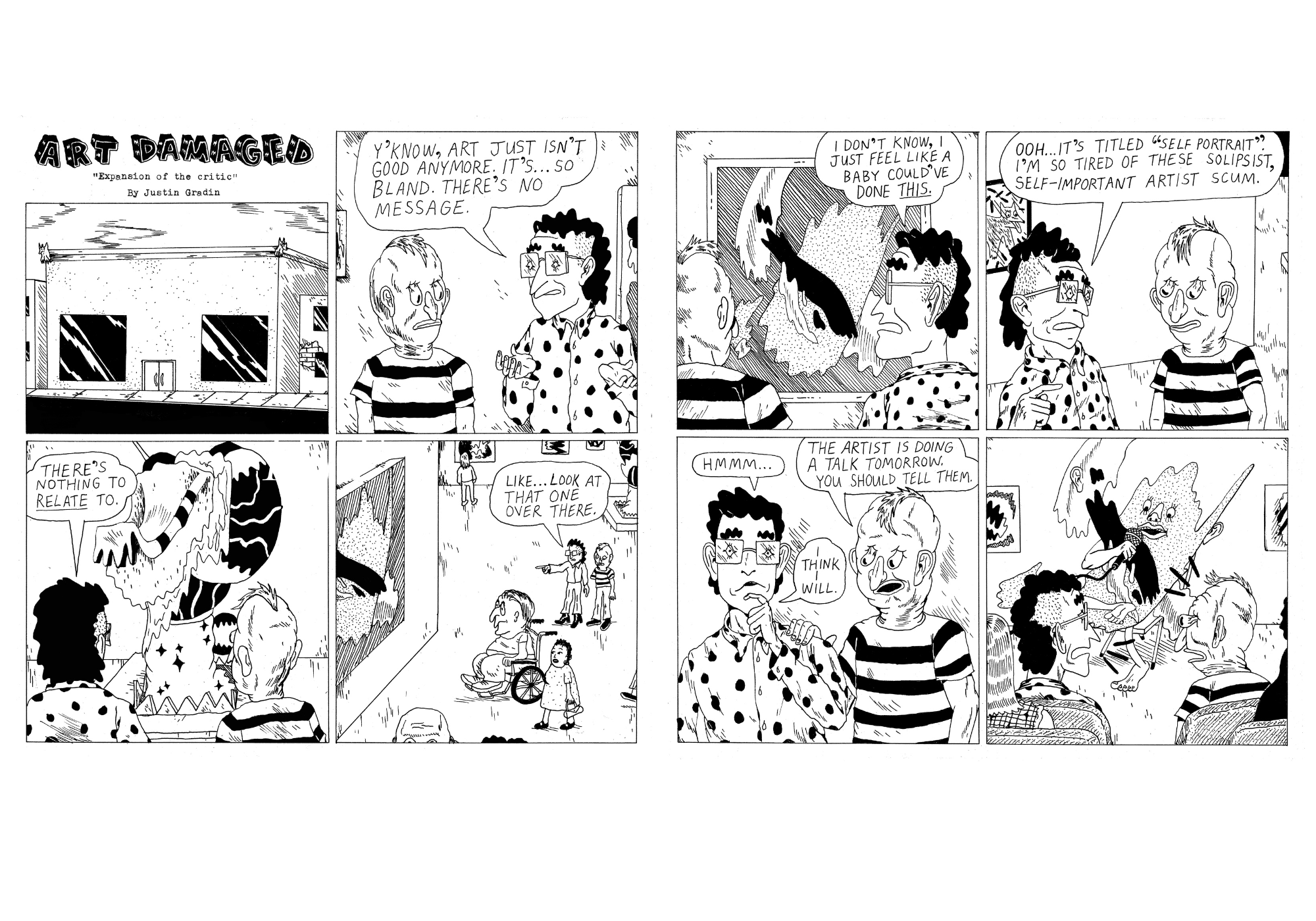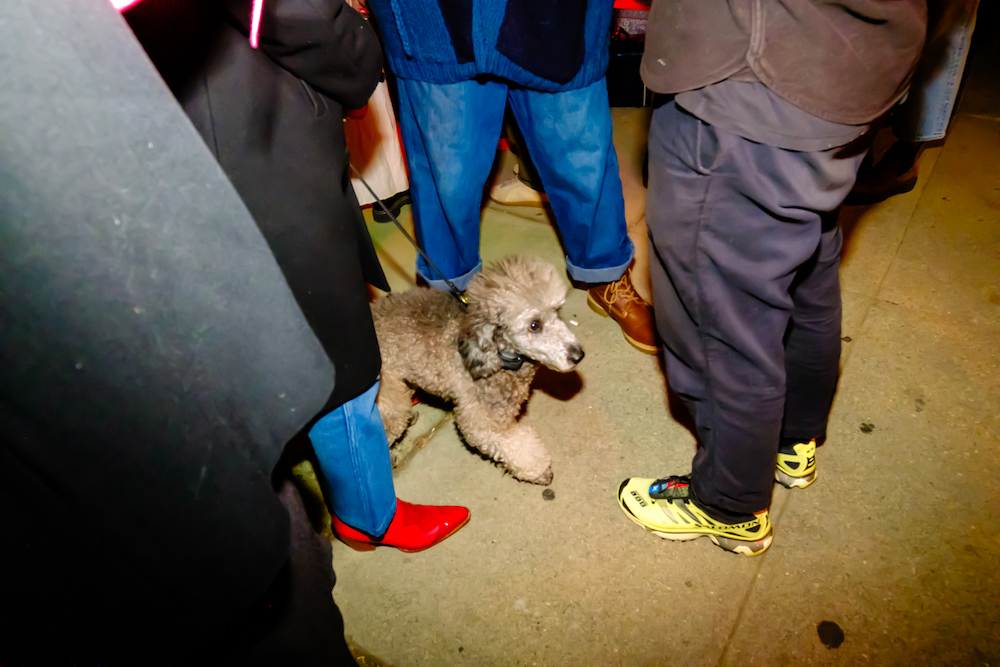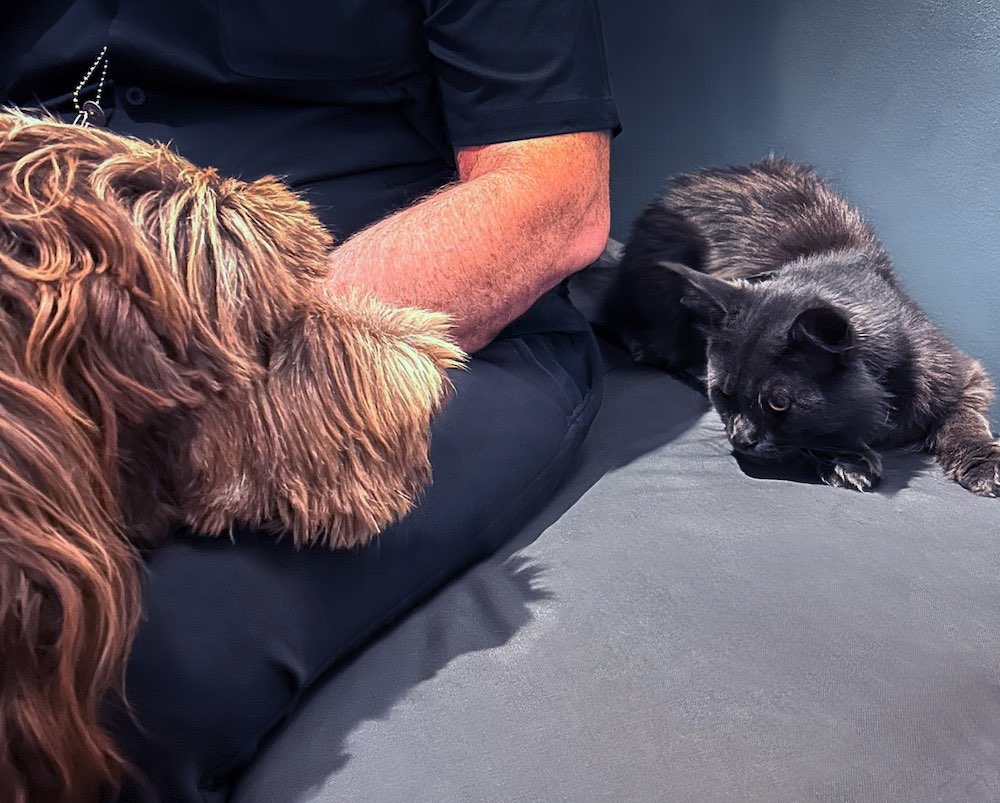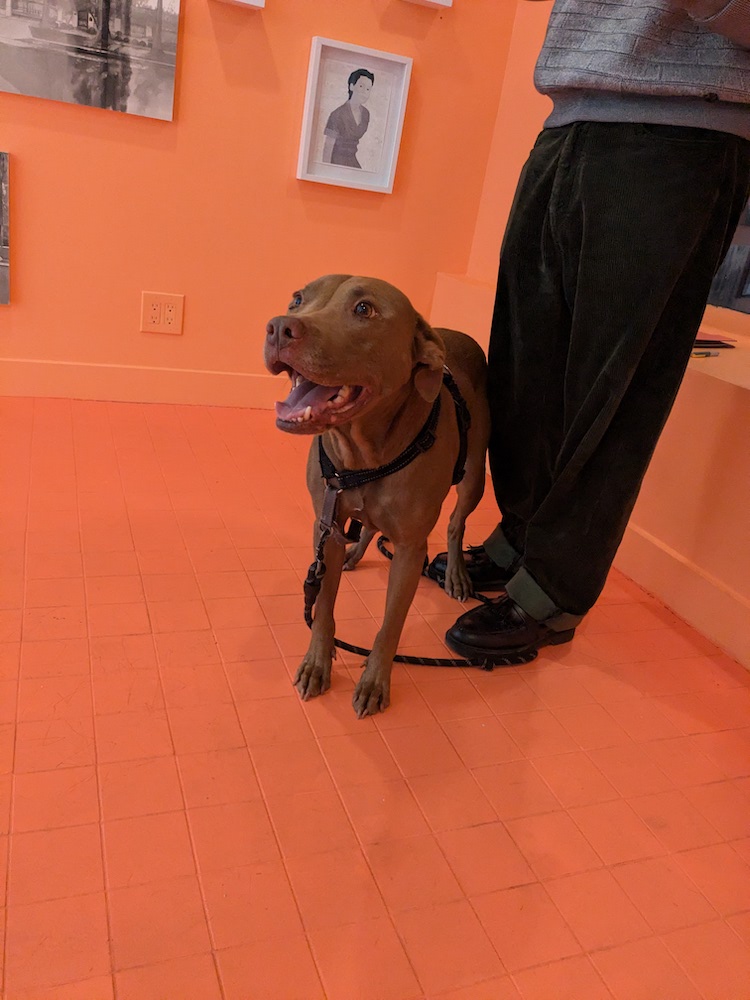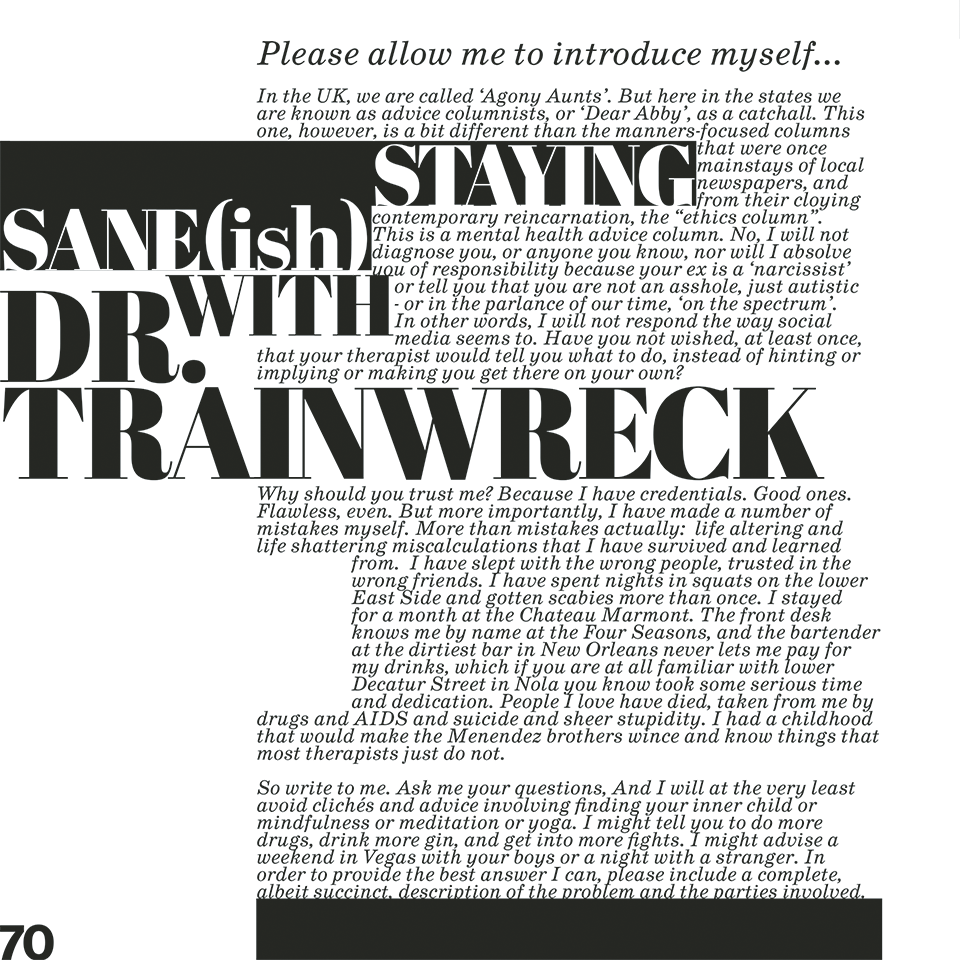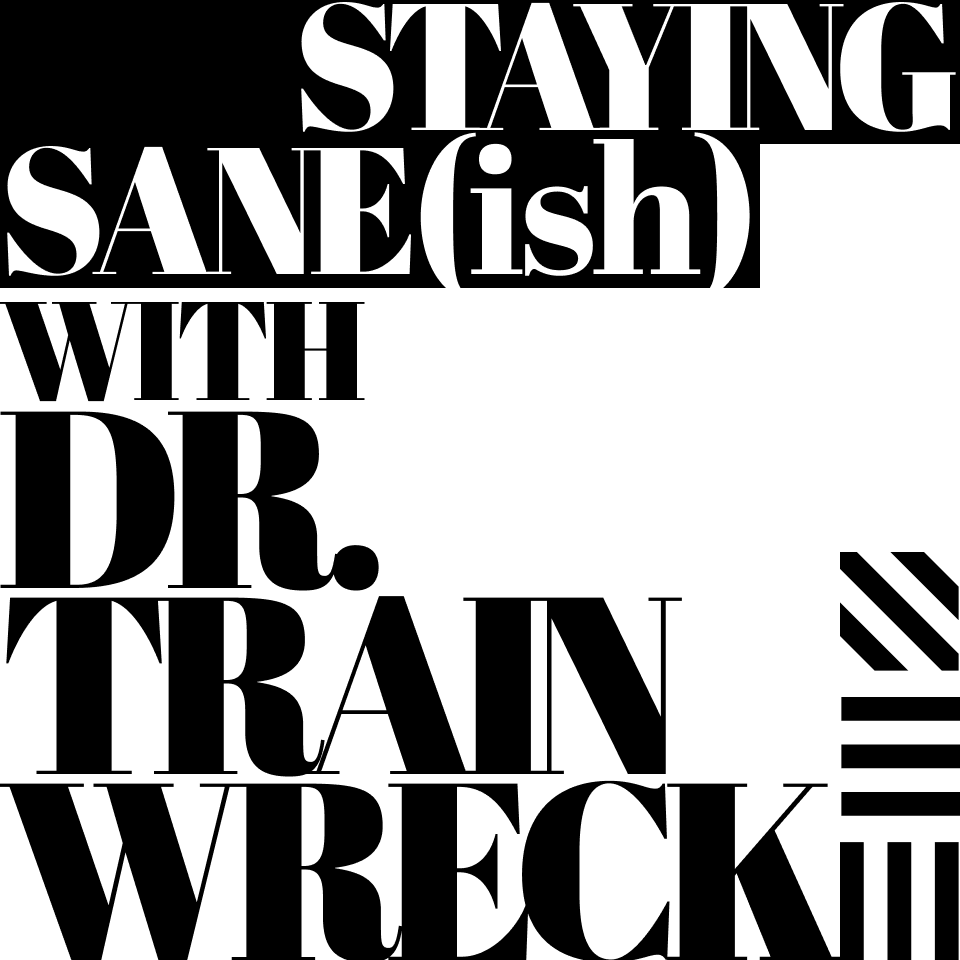Your cart is currently empty!
Category: ***JAN-FEB 2025
-

Staying Sane With Dr. Trainwreck
The IntroductionPlease allow me to introduce myself…
In the UK, we are called ‘Agony Aunts’. But here in the states we are known as advice columnists, or ‘Dear Abby’, as a catchall. This one, however, is a bit different than the manners-focused columns that were once mainstays of local newspapers, and from their cloying contemporary reincarnation, the “ethics column”. This is a mental health advice column. No, I will not diagnose you, or anyone you know, nor will I absolve you of responsibility because your ex is a ‘narcissist’ or tell you that you are not an asshole, just autistic – or in the parlance of our time, ‘on the spectrum’. In other words, I will not respond the way social media seems to. Have you not wished, at least once, that your therapist would tell you what to do, instead of hinting or implying or making you get there on your own?
Why should you trust me? Because I have credentials. Good ones. Flawless, even. But more importantly, I have made a number of mistakes myself. More than mistakes actually: life-altering and life-shattering miscalculations that I have survived and learned from. I have slept with the wrong people, trusted in the wrong friends. I have spent nights in squats on the lower East Side and gotten scabies more than once. I stayed for a month at the Chateau Marmont. The front desk knows me by name at the Four Seasons, and the bartender at the dirtiest bar in New Orleans never lets me pay for my drinks, which if you are at all familiar with lower Decatur Street in Nola you know took some serious time and dedication. People I love have died, taken from me by drugs and AIDS and suicide and sheer stupidity. I had a childhood that would make the Menendez brothers wince and know things that most therapists just do not.
So write to me. Ask me your questions, And I will at the very least avoid clichés and advice involving finding your inner child or mindfulness or meditation or yoga. I might tell you to do more drugs, drink more gin, and get into more fights. I might advise a weekend in Vegas with your boys or a night with a stranger. In order to provide the best answer I can, please include a complete, albeit succinct, description of the problem and the parties involved.
I need data and context to arrive at a useful result. But rest assured, whatever you ask me, I will give you the best, most honest, least bullshit answer that I can. That answer will come from who I am, and what I have seen, and yes, decades of training at the worlds’ most prestigious institutions. I am Dr Trainwreck, and I am here to say the thing nobody else in your life will.
I gotta motor if I’m gonna make it to that funeral.
—Dr. C. Barnabas WestlakeDear Dr. Trainwreck,
I am an artist and I work in the arts, but I am plagued by the feeling that I am not doing enough to make the world a better place. Every day I fantasize about quitting my art world job and getting into a profession where I feel like I’m helping others directly. But I love art and I’m also afraid I’d feel alienated if I left it behind. How do I decide what to do?
Sincerely,
Guilt-ridden in LADear Guilt-ridden
Firstly, guilt often exists to remind us that we are, in fact, doing something wrong. Second, if you want to help people, you do. It is that simple. There are, of course, ways to bring your artistic self with you into a helping profession (think art therapy, community projects, murals, and so on). Without knowing what kind of artist you are, I cannot say what a good fit might be. But I can say that if you feel guilty, it is likely because you know in your core you are not doing all (or maybe even anything) you can do for others. That said, art has always, and in my opinion will always, be at the forefront of revolution and resistance, and is vital to keeping the darkness at bay. So be an artist. But perhaps be an artist who falls more into the category of activist artist rather than self-indulgent artist. This is not a time to navel-gaze or retreat to a studio and interpret the world on a canvas. This is a time to fight, to contribute, to stand up. As for feeling alienated and left behind? I for one would certainly prefer that to feeling—no, to knowing—that when people needed help, I chose to ignore that need.
Be well, and do good things.
—Dr. C. Barnabas Westlake -

Staying Sane with Dr. Trainwreck
The ConversationThe ‘conversation’ (incidentally the worst possible way to describe anything other than an actual conversation, as in, human beings speaking with one another) around language and words is ongoing and, dare I say, rather boring.
That aside, it is vital that we reject the amorphousness and imprecision which seems to seep into everything—nuance is added to places where it does not belong, and absolutely rejected in areas where it should be encouraged, to the point where one could safely say that nuance has been cancelled. I publish in the sorts of academic journals that will reject a paper based on one’s use of contractions and so I believe, very much, in boundaries. Like art, most things begin with drawing a line somewhere. The words we use every day when we are upset, uncomfortable, or stressed out—words like ‘harm’, ‘trigger’ and ‘predator’—have psychological definitions. As do the words ‘autistic’, ‘sociopath’, ‘narcissist’ We should respect those definitions.
A student once complained to the dean at a university where I was teaching a course on psychology that I was ‘abusive’ because I did not give a trigger warning before assigning Freud. This was a master’s level student who presumably had at least a vague concept of what the man was on about. At first I was appalled, then frustrated, and finally heartbroken because what are we doing in academia, or the world, if we devote ourselves only to avoidance. Avoidance of unpleasantness, or controversy, or divisiveness. The entire human endeavour becomes impossible. It becomes static. When a person training to be a therapist says out loud that Freud makes them unsafe, clearly we have lost all sense of rigor and reason. To me, in my world, one is unsafe when going home drunk with a stranger or failing to use a condom or picking a fight with a biker. Unsafe means you are frightened of being hurt, physically and for real. It does not mean you are slightly uneasy in a classroom, a classroom situated on a beautiful campus in the heart of idyllic New England. Well, idyllic for rich white people, anyway.
Which leads me to our word of the day: Trigger. Triggering is a physiological and psychological event. It has an application that has nothing to do with 99 percent of the things to which it is attributed. Let us suppose you were the victim of a brutal assault, as I have been. Every time you smell the cologne that the son of a bitch wore you get queasy, your vision narrows to a point, and you feel exactly the same as that long ago night in the UK. You see, your brain (or mine) truly does not know that it is not still in that apartment, and you are not being choked into unconsciousness repeatedly for what seemed like days but which was, in actuality, 18 hours. That is what I mean when I say ‘triggering’. I am not, ever, referring to words on a page. Words on a page are not unsafe, you can close the book, turn the page, write a letter to the editor. But whatever you decide to do with those words, recognize that they cannot truly hurt you. In extreme cases, a single word can cause a trauma response. I can list 10 sadistic edgelords from the annals of true crime that did this to their victims on purpose, essentially conditioning them to respond to certain phrases with terror and helplessness. Personally, I refuse to say the names of my rapists out loud, but this is less about triggering and more about spite, and a refusal to give them even that recognition.
Of course, for me to blithely dismiss how some words and images can be an act of hate would be irresponsible. Some manifestos or calls to action have led to truly horrifying events. Some words and symbols are themselves a crime. Some words are not protected by our ever-eroding constitutional rights. Hopefully we know what these words are. I surely am not going to list them here. We can reclaim a few, but some…some just will not be rebranded. Take for example the ever-present and increasingly common swastika. No matter what that douche at a party says about it being an ancient symbol it means one thing, and one thing only. It is visceral, physical, bone-deep and yes, traumatic, to see the red and black adorning the arms of men in our country. It is terrifying and powerful and reminds me every time I see it that I am unsafe. Like, taken-away-at-4 AM-by-the government unsafe.
So do you get the difference? Between unsafe and triggered and merely uncomfortable? Because I assure you many people seem to have difficulties with this. They seem to believe that being uncomfortable is by definition to be unsafe. That being triggered is an everyday, almost all day, commonplace occurrence. If this were the case, no one would do anything except sit in a dark room and cry forever. Yes, words can upset, incite tears or rage or even lead to violence. Words matter. How we use them matters. I implore all of you to be selective. Be mindful. Be honest. Know what the hell a word means before you ascribe it to a situation or to a person. My ex was not abusive; he was a prick. That time I watched Trainspotting and cried for two days? I was not triggered, just deeply saddened and missing a boy from my youth. And your mom really is a narcissist. Not because you think so but because she meets all of the diagnostic criteria to make that statement true. Finally, if this article upset you, please say that, but do not say it harmed you or triggered you or traumatized you or is somehow violence being perpetrated against you. Trust me, violence cannot be restrained by a page. And it cannot be censored or stopped and it does not give a shit about your safe spaces, your restorative justice, or your feelings. You want violence? Leave your apartment or your discord group or your mother’s basement and venture into the real world, where real people hurt each other every damn day.
—Dr. C. Barnabas Westlake
